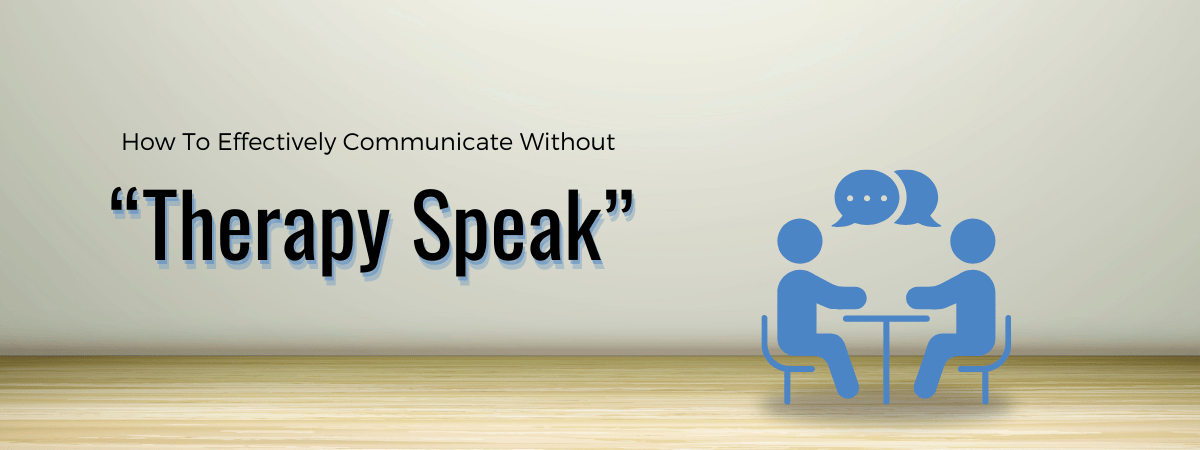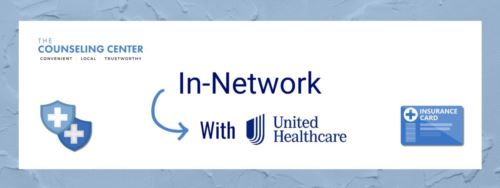

Why You Need To Avoid "Therapy Speak" in Regular Conversations
There’s been an enhanced focus on mental health in recent times, bringing previously taboo topics into the public domain. While this development is admirable, it has also begun a trend that can hinder meaningful communication: "therapy speak."
This type of discourse is misunderstood, overused, and stretched beyond its true purpose by inexperienced people in daily situations and on social media platforms like TikTok, Instagram, and more. Discover more about what therapy speak is, how it influences people, and explore tips on discussing mental health care more productively.
What Is Therapy Speak?
Therapy speak refers to utilizing psychological terminology, often borrowed from treatment sessions, in regular conversations. Words and phrases have made their way out of professional environments and become widespread in hashtags, headlines, and, sadly, intense arguments between loved ones.
When these expressions are misconstrued in regular discourse, they can transform into a way to avoid more beneficial dialogue and detrimentally misinterpret complex emotions. They may even halt valuable discussions with lasting negative repercussions, as people with no experience or credentials may misdiagnose themselves or others they care about.
Here are a few examples of therapy speak:
- “I’m setting a boundary,”
- “That’s triggering for me,”
- “Are you doing the work?”
- “Is it a safe space?”
- “Maybe you’re processing your trauma.”
While these expressions can be valuable within a clinical context at a credentialed facility like The Counseling Center, they are often out of place in day-to-day life.
Therapy Speak Can Weaken Real Conversation
At TCC, we promote integrating mental health practices into daily life. But, we also recognize the potential drawbacks of utilizing medical or jargon-heavy language outside therapeutic settings. Relying on therapy speak can diminish the actual intent of conversations, forming obstacles instead of fostering connection and understanding. We’ve noticed people commonly turn to therapy speak as a defense mechanism.
There might be an understanding that therapy speak can’t be challenged since it reflects what you might experience in a healthcare setting. Yet constructive dialogue needs empathy, active listening, and mutual understanding.
The Impact of Therapy Speak
1. Preventing Authentic Connections
Relying on therapy speak can make interactions feel clinical or mechanical, eroding the personal warmth that fosters authentic connection. It can “therapize” family interactions, converting meaningful face-to-face discourse into what may sound like a 30-second reel created by a mental health practitioner on TikTok.
For example, telling someone close to you, “I really must hold space for myself right now,” may sound formal and aloof compared to simply stating, “I’m feeling stressed and need a bit of time to think things over.”
2. Misunderstanding and Misuse
Therapeutic terms have particular meanings within proper contexts. Misapplying phrases like “narcissistic” or “trauma” not only trivializes their actual intent but may also spread stigma around mental health diagnoses. Individuals attempt to diagnose instead of listening and creating time for actual discussion.
At The Counseling Center, we support thoughtful language that values the weight of words used in clinical settings, ensuring they are not misused or weakened in everyday conversations. We’ve found that therapy speak typically breeds confusion, with countless terms used inaccurately. This language may serve as a shield to guard us from guilt, obligation, or judgment.
3. Dodging Accountability
Although concepts like self-care and setting boundaries are significant, therapy speak is often misapplied to deflect responsibility or avoid accountability. To illustrate, saying, “I’m protecting my boundaries,” to justify harmful behavior can counteract the trust and honesty required in healthy relationships. There are always new phrases to justify self-serving or even aggressive behaviors. The term “boundaries” has become particularly vexing to professional therapists.
You now hear therapeutic expressions utilized when people simply don’t wish to do something. With all the conflicts that follow, you might wonder if your “boundary” is more important than your loving relationship.
How to Communicate Effectively Without Therapy Speak
We feel genuine communication doesn’t require complex terminology. Instead, it’s about being authentic, straightforward, and considerate. Our counselors have a few other practical tips to help:
1. Speak From the Heart
Focus on how you feel instead of depending on jargon when expressing emotions. To illustrate:
- As opposed to: “You’re gaslighting me.”
- Try: “When you say that, it makes me feel like my perspective isn’t being acknowledged.”
2. Emphasize Understanding
Try to listen attentively instead of labeling behavior. Expressions like “Help me see where you’re coming from” foster productive dialogue.
3. Be Aware of Your Audience
Note that not all individuals are familiar with professional terms. Using plain, easy-to-understand language helps get your message across more effectively.
4. Use Boundaries Thoughtfully
Boundaries are critical, but they need to be conveyed with care. Rather than: “I’m setting a boundary.” Try: “I need to step away from this situation for now so I can think about it.”
Therapy provides tools, not word-heavy scripts. Counselors at TCC routinely evaluate how you’re using what you’ve learned to confirm it improves, rather than diminishes, your relationships.
How The Counseling Center Fosters Effective Communication
At The Counseling Center, we strive to enable people with the abilities they need to navigate their mental health journey while developing stronger relationships. Our offerings include:
- Individual Therapy: One-on-one sessions to strengthen self-awareness and enhance emotional intelligence.
- Family and Couples Therapy: Helping loved ones communicate more meaningfully and work through disputes peacefully.
- Group Therapy: Offering a safe space for authentic communication in a supportive environment. Our therapists emphasize helpful, real-life applications of therapeutic concepts, ensuring you can interact effectively with others without depending on jargon.
Request Specialized Mental Health Support Today
If you’re motivated to strengthen your understanding of who you are and improve your relationships, we’re ready to help. Discover more about our intensive outpatient and outpatient services. If you require immediate help, please contact our 24/7 hotline at 833-248-6271. Together, we can empower you to communicate with clarity, empathy, and purpose—without sacrificing the essence of who you are.



